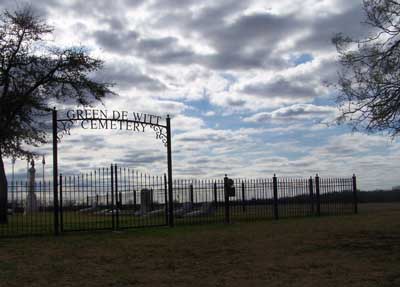The juggernaut was-and still is, according to a quick internet search, an enormous, towering wagon with the image of a deity or two enthroned at the very peak under a vast canopy. This structure is taken out for a grand procession once yearly, pulled by devotees through the streets of a certain city in India: no quick spin around the block and back again: this wagon is enormous, clumsy, and heavy. Picture Elizabeth Taylor as Cleopatra, arriving to meet Mark Anthony, or the Persian emperor Darius grand entrance in 300; it’s an arresting visual, and often used as a metaphor to indicate a certain sort of power, will and devotion.
Americas
Northfield – Tales of a Citizen Militia
It would seem from the history books that most veterans of the Civil War settled down to something resembling a normal 19th century civilian life without too much trouble. One can only suppose that those who survived the experience without suffering incapacitating physical or emotional trauma were enormously grateful to have done so. Union veterans additionally must have been also glad to have won the war, close-run thing that it appeared to have been at times. Confederate veterans had to be content with merely surviving. Not only did they have to cope with the burden of defeat, but also with the physical wreckage of much of the South… as well as the wounds afflicted upon experiencing the severe damage to that whole Southern chivalry-gracious plantation life, fire -eating whip ten Yankees with one arm tied behind my back-anti-abolitionist mindset. But most Confederate soldiers laid down their arms and picked up the plow, so to speak fairly readily… if with understandable resentment. In any case, the still-unsettled frontier west of the Mississippi-Missouri basin offered enough of an outlet for the restless, the excitement-seekers and those who wanted to start fresh.
A New Doctrine?
Carter Doctrine:”The Carter Doctrine was a policy proclaimed by President of the United States Jimmy Carter in his State of the Union Address on January 23, 1980, which stated that the United States would use military force if necessary to defend its national interests in the Persian Gulf region. The doctrine was a response to the 1979 invasion of Afghanistan by the Soviet Union, and was intended to deter the Soviet Union—the Cold War adversary of the United States—from seeking hegemony in the Gulf. After stating that Soviet troops in Afghanistan posed “a grave threat to the free movement of Middle East oil,” Carter proclaimed:….”
On the tenth anniversary of 9/11, as we remember the fallen and the many members of the armed services of the United States who have served for ten years of war, heroically, at great sacrifice and seldom with complaint, we also need to recall that we should not move through history as sleepwalkers. We owe it to our veterans and to ourselves not to continue to blindly walk the path of the trajectory of 9/11, but to pause and reflect on what changes in the last ten years have been for the good and which require reassessment. Or repeal. To reassert ourselves, as Americans, as masters of our own destiny rather than reacting blindly to events while carelessly ceding more and more control over our lives and our livelihoods to the whims of others and a theatric quest for perfect security. America needs to regain the initiative, remember our strengths and do a much better job of minding the store at home.
– Zenpundit, The Nine-Eleven Century
1. Canada and oil sands: “Bituminous sands, colloquially known as oil sands or tar sands, are a type of unconventional petroleum deposit. The sands contain naturally occurring mixtures of sand, clay, water, and a dense and extremely viscous form of petroleum technically referred to as bitumen (or colloquially “tar” due to its similar appearance, odour, and colour). Oil sands are found in large amounts in many countries throughout the world, but are found in extremely large quantities in Canada and Venezuela.[1]”
2. Israel and Natural Gas: “In recent years, Israel has found and begun developing massive natural gas deposits in the Mediterranean Sea. There is much more wealth underwater– the U.S. Geological Survey estimates that the Levant Basin contains as much as 122 trillion cubic meters of recoverable gas — and all countries around the basin want a piece of the action.”
3. Russian state oil and American oil companies: “America’s largest oil company last week reached an historic agreement with Russia’s state oil company, Rosneft. ExxonMobil now will take the place of BP (British Petroleum), whose dealings with Rosneft collapsed earlier this year.”
4. Dakotas and oil reserves: “America is sitting on top of a super massive 200 billion barrel Oil Field that could potentially make America Energy Independent and until now has largely gone unnoticed. Thanks to new technology the Bakken Formation in North Dakota could boost America’s Oil reserves by an incredible 10 times, giving western economies the trump card against OPEC’s short squeeze on oil supply and making Iranian and Venezuelan threats of disrupted supply irrelevant.”
5. Bloom boxes: “One example to illustrate why the future is proving elusive in the USA: There is a stand-alone electricity providing unit called the Bloom Energy Server or “Bloom Box” — small, simple to use — which can power any home or commercial building. The wondrous box has already been test-driven; Google, eBay and a number of other Fortune 500 companies have a few Bloom Boxes and they’re saving fortunes in electrical bills.
In other words, the Bloom Box can make America’s electricity grid obsolete. There are only two things holding the box back from being installed in every residential, commercial and government space in the USA:
a) Bloom Energy, the company that makes the box, doesn’t have large manufacturing capacity.
b) The U.S. energy industry doesn’t want to be shoved around by a box. (The same for much of the ‘Green Jobs’ sector that the federal government has been pushing hard. The Bloom Box technology makes windmill and solar panel technologies obsolete.”
The GOP debates have been intellectually vapid and the fault does not lie entirely with our lightweight media moderators. Ladies and gentlemen, you are “auditioning” for the toughest job in the world. Ladies and gentlemen, you are genuinely interesting and accomplished people. Be leaders. Hire some decent speech coaches, do a little background wonky reading and show us your vision for the future.
Update: I made a few edits for clarity. Thanks for the comments, everyone. I don’t know squat about this topic. Carl from Chicago is definitely the “go to” guy on energy topics around here but I’ve been bored with the debates and wanted to blog about that for some time now. Also, I don’t know what the whole “ladies and gentlemen” thing is about. It’s kinda affected. Incorrect, too. Only one lady has been involved in the formal debates….so far….
Eating Good in the Neighborhood
For your weekend delectation … excellent eating, in San Antonio and environs:
On the grill at Easy Picken’s BBQ, in Harper, Texas. Alas, they don’t have a website, and are only open Fridays and weekends … but the grilled meats are sublime.
Texas Travelogue:Gonzales
The town of Gonzales is about an hour’s drive east and a little way south of San Antonio. In the days when Texas was a Spanish and then a Mexican posession, San Antonio, Goliad and Nacogdoches were the centers of what little population there was. But in the 1820s, the newly-established and independent Mexican nation sought to encourage America and European entrepeneurs to take up generous land grants, and bring in settlers. Stephen F. Austin was the one that everyone knows about: the urban heart – if you could call it that – of his grant was at San Felipe on the Brazos River.

